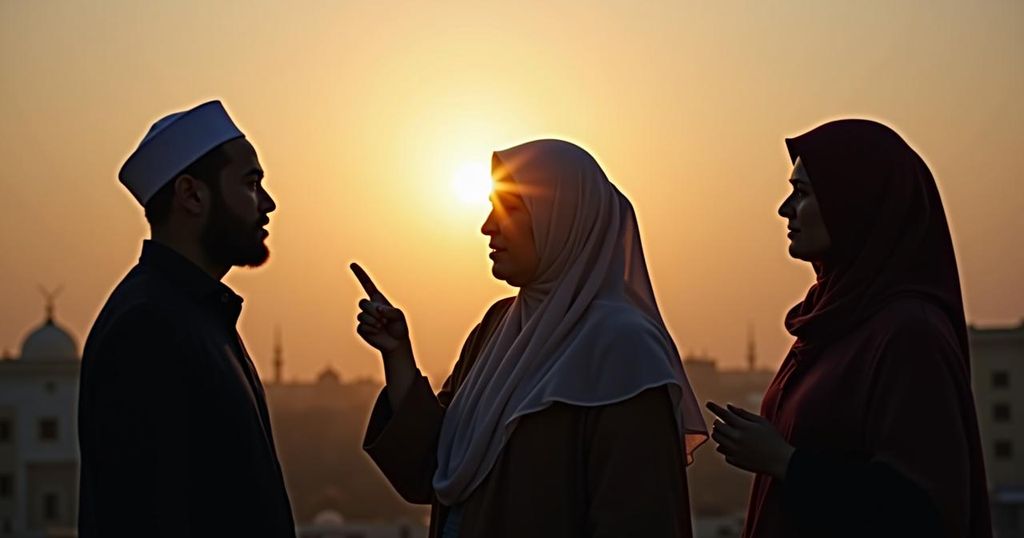A coalition of Muslim voters in Georgia is unwilling to support Vice President Kamala Harris or former President Donald Trump due to their backing of Israel amid the Gaza conflict. Voter sentiment is shifting towards third-party candidates as a means to express dissatisfaction with both major parties. This presents a potential electoral challenge for Harris, particularly given the historical voting patterns among Muslim Americans.
A rising coalition of Muslim voters in Georgia has announced their intention to abstain from supporting either Vice President Kamala Harris or former President Donald Trump in the upcoming election, primarily due to both candidates’ unwavering backing of Israel amid the ongoing Middle East crisis. Harris has publicly affirmed Israel’s right to self-defense while advocating for a ceasefire in Gaza; conversely, Trump has reiterated his role as Israel’s defender, strengthening his endorsement of the nation. Given Georgia’s critical electoral significance, especially after Trump’s narrow defeat to President Joe Biden in 2020, the Muslim electorate could substantially influence the outcome of the state’s 16 electoral votes. Nationally, Muslim voters are nearly evenly split between Harris and Trump, with Harris holding a slight one-point edge according to a recent Arab American Institute poll. Discussing their discontent, Kristen Truitt, a Muslim American voter from Atlanta, expressed, “Just to give unlimited funds and access to Israel, I think that is totally ridiculous.” This sentiment arises as the conflict in Gaza, initiated by Hamas’s attack on October 7, 2023, continues to escalate, causing significant casualties on both sides. With operational pressures growing on both candidates from the Muslim community, many have aligned themselves with the “Abandon Harris” campaign, which advocates for third-party voting to convey a clear message to both major parties that they must earn the support of Muslim voters. Furthermore, this movement has reportedly gathered commitments from over 10,000 Muslims to support third-party candidates, such as Libertarian Chase Oliver and Green Party’s Jill Stein, who have critiqued Israel’s actions in Gaza. Experts indicate that the repercussions of losing Muslim voters may disadvantage Harris more significantly than Trump, who has historically struggled to garner support from this demographic. In summary, both Harris and Trump face potential electoral challenges within the Muslim community due to their stances on Israel, compelling many voters to consider alternative candidates as an expression of their discontent with mainstream political choices.
The political landscape for Muslim voters in the United States has been increasingly complex, especially in relation to the Israel-Palestine conflict. The ongoing violence in Gaza and the responses from various political figures have prompted significant backlash from Muslim communities. Particularly in battleground states like Georgia, where electoral outcomes are pivotal, voter sentiment can tilt in favor of candidates who effectively address issues crucial to these communities. The historical context of Muslim voting patterns, generally favoring Democrats with notable exceptions, underscores the impact of foreign policy on domestic electoral strategies.
In conclusion, the discontent among Georgia’s Muslim voters towards both Kamala Harris and Donald Trump reflects a broader dissatisfaction with their stances on Israel amid the escalating Gaza conflict. The formation of the “Abandon Harris” campaign signifies a determined push for third-party candidates as a means of voicing the unique political demands of Muslim constituents. This situation underscores the potential electoral ramifications for both candidates, particularly Harris, if they fail to actively engage with and address the concerns of the Muslim electorate.
Original Source: www.foxnews.com






